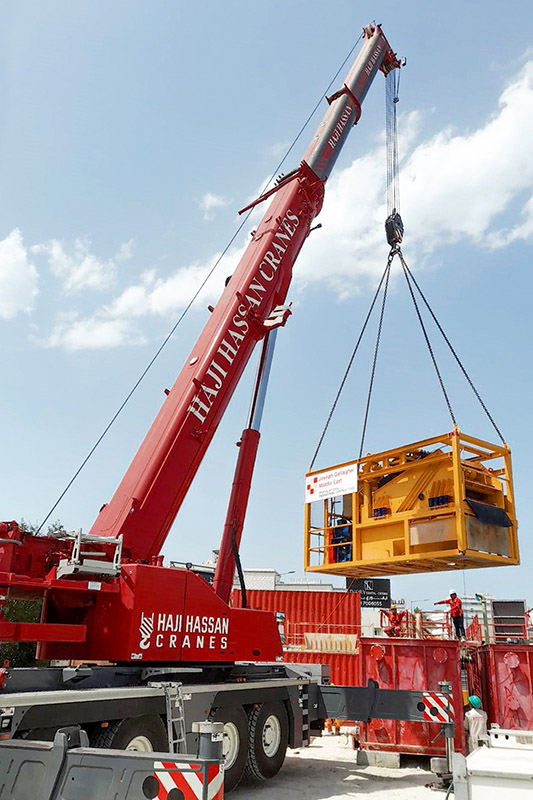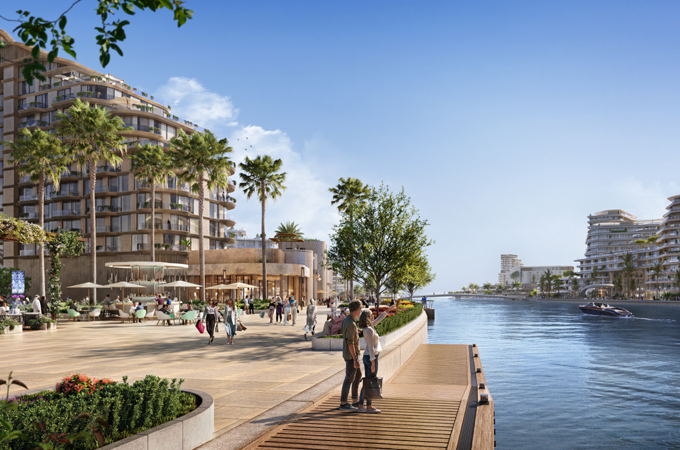Leading real estate industry expert JLL and global automation major Honeywell have released a new whitepaper providing a practical blueprint for navigating the complexities of smart city development and building truly transformative urban spaces.
Acknowledging that the journey towards creating efficient, sustainable and citizen-centric urban environments is complex, leading real estate industry expert JLL and global automation major Honeywell have released a new whitepaper providing a practical blueprint for navigating the complexities of smart city development and building truly transformative urban spaces.
Titled ‘Solving the Challenges of Smart Cities: An Integrated Approach to Realizing Urban Potential’, the whitepaper identifies organizational fragmentation, technological integration and workforce readiness as key challenges hindering smart city progress.
In response, JLL and Honeywell recommend an integrated approach, leveraging enterprise agility, data-driven decision-making, and advanced technologies such as digital twin simulations to create more cohesive and effective smart city environments.
As rapid urbanisation continues to reshape the global landscape, these actionable insights will significantly empower cities to achieve genuine, measurable gains, said JLL in a statement.
The paper underscores the importance of establishing rigorous performance metrics to measure the success of smart city initiatives. By focusing on outcomes and data-driven insights, organizations can ensure that investments are aligned with strategic goals and deliver measurable value, it stated.
Outlining an integrated approach in the whitepaper, the duo emphasise the need to break down departmental silos in organisational structures through unified governance and cross-functional collaboration among stakeholders as internal fragmentation leads to redundant expenditure on overlapping systems, lower adoption of city services by end-users, prolonged deployment timelines, and reduced adaptability to new technologies or business environments.
To address these internal silos, organisations must embrace enterprise agility, focus on value-stream alignment and adopt an architectural approach that fosters modular, easily reusable solutions.
A similar approach is recommended to address technological and construction complexities and to seamlessly integrate IoT sensors that monitor air quality, energy consumption, or occupancy with building management systems, analytics platforms, and occupant engagement apps, said JLL in its statement.
Additionally, adopting digital twin technologies to create virtual replicas of buildings and infrastructure will enable organizations to predict outcomes, reduce risk, and accelerate learning, it added.
Dr Matthew Marson, Managing Director EMEA, Technology Advisory at JLL, said: "Smart cities are crucial in addressing critical urban challenges of resource management, citizen well-being and city-scale attractiveness."
"Realizing this potential requires a fundamental shift in how we approach such initiatives. Our new white paper provides an action-oriented roadmap for organizations to overcome the barriers in this journey, ensuring that their smart city projects deliver tangible benefits to both the enterprise and the city’s inhabitants," he added.
Mohamed Moselhy, Global Smart Cities Director at Honeywell Building Automation, said: "The future of smart cities hinges on breaking down silos and fostering seamless integration between advanced technology, governance, and human capital. Our collaboration with JLL underscores the importance of an enterprise-wide approach - leveraging digital twins, IoT-driven insights, and agile governance models to enhance operational efficiency and citizen experience."
"By implementing transparent performance metrics, we ensure that smart city investments not only help drive sustainability and economic growth, but also create truly connected, responsive urban environments that evolve with societal needs," he noted.
According to JLL, the whitepaper highlights that investing in training and skills development will be critical to equip the workforce with the necessary tools to navigate the evolving smart city landscape.
This includes formal upskilling programmes such as workshops, mentorships or certification pathways to allow knowledge to flow across departmental boundaries and facilitate best-practice sharing.
A significant challenge would also be to retain and motivate talent, and to support this, JLL and Honeywell recommend implementing strategies that enhance career progression, flexible work arrangements and recognition of innovative contributions.
Since traditional construction project management strategies are often ill-suited to technology environments, JLL and Honeywell suggest adopting agile and realistic project management practices such as phased rollouts and proofs-of-concept to test new solutions in a controlled setting.
A structured risk management framework is further recommended to anticipate supply chain delays, policy changes, or occupant pushback, paving the way for continuous improvement and adaptation based on real-world feedback, said the statement.
The paper calls upon smart city organizations to assess progress and deliver real value via robust, transparent metrics that measure economic impacts including job creation, foreign direct investment, and operational efficiencies alongside environmental benefits, social outcomes, and citizen experience.
It concludes by urging organizations to adopt an operational model similar to streamlined multi-product corporations with experts recommending agility in responding to changing urban needs and maintaining focus on integrated, scalable, and user-centric solutions.-TradeArabia News Service

































